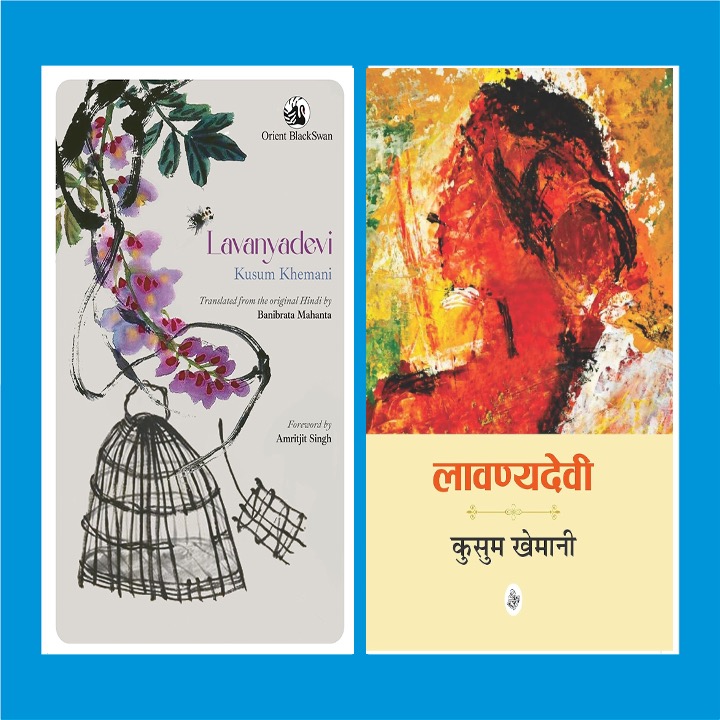लावण्यदेवी
Spanning five generations of a zamindar family, Lavanyadevi is a story about women and their search for self, about shared laughter and friendships that endure across generations, beliefs and cultures—between mother and daughter, grandmother and granddaughter, and Marwari and Bengali women. Khemani’s women protagonists are strong, clear-sighted, both worldly and sublime, embodying a larger-than-life idealism while being grounded firmly in the everyday. Lavanyadevi—a compelling woman of perfection, extraordinary vision, qualities, and grace—remains real and credible because she is self-aware, self-critical, open to others, and to change.
Chronicling change in women’s lives over two centuries, Lavanyadevi is as valuable today for its questioning of majoritarian perspectives of caste, culture, sexuality, and faith, as for its advocacy of humanitarianism beyond borders. The strong bonds between grandmother and grandchildren, who continue Lavanyadevi’s legacy of universal humanism, rooted in Hindu philosophy, underscore that progress does not always mean breaking from the past. It is also a deeply political novel that contests colonialism and Western modernity, and advocates sustainable, indigenous approaches to life.
Winner of the PEN/Heim Translation Grant 2021, the jury called Lavanyadevi an ‘ambitious, far-reaching’ novel, lauding Khemani’s ‘energetic prose, deadpan sense of humor, and exquisite control’,
and Banibrata Mahanta’s translation that ‘stretches and manipulates language to produce a vivid text’ and a must-read for lovers of Indian literature. (From Publisher's Website)
Authors : Kusum KhemaniOriginal Publisher : Rajkamal PrakashanPublisher: Orient Blackswan
Translators:
........At its heart, Lavanyadevi is a story about women, mothers, daughters, grandmothers and the ties that bind them across time, space, and social boundaries. The titular protagonist, Lavanyadevi, emerges as an enigmatic and compelling figure. She is both worldly and spiritual, grounded in her everyday struggles yet embodying ideals of grace and vision. ....
As a central character, Lavanyadevi, appears at first to be untouched by struggle. She is the only child of wealthy parents, highly intelligent, and married to a husband who provides her with immense wealth and unconditional support. However, as the story progresses, her inner conflicts and true struggles come to light. Her life, shaped by a commitment to action and a deep connection to indigenous spirituality, is an exploration of modernity’s interface with tradition.
Cultural evolution and pluralism
Set against the backdrop of India’s transition from colonial rule to contemporary times, the novel delves into the challenges of migration, displacement, and the evolving identities of the Marwari diaspora in Kolkata. The novel transitions seamlessly from personal stories to historical events. As a Kolkata Marwari herself, Khemani blurs the distinctions between ‘Bengali’ and ‘Marwari,’ crafting a narrative that celebrates a pluralistic and uniquely Indian ethos.
The comparison between Western and Indian lifestyles is another significant feature of the novel, which reveals the author’s insightful perspective. Khemani addresses contemporary issues like marriage, sexual ethics, and the challenges of urban and corporate lifestyles with high sensitivity. We find that the novel also highlights how women, even in modern times, impose self-restraints on natural behaviours like laughter, reflecting social pressures.
While reading the book, we naturally encounter how this novel is as much a chronicle of social, cultural, and personal change as it is an affirmation of enduring values rooted in shared humanism.
Balancing the personal and the political
We also discover that the true strength of Lavanyadevi lies in its seamless balance between the personal and the political. The story reflects on the dynamics of caste, culture, and faith, while also addressing broader questions of colonialism, modernity, and sustainable ways of living.
Kusum Khemani writes in the book:
“As soon as she heard these words, Mami’s face lit up with the joy of the fulfilment of a long-awaited wish. But Mama, like Khwaja Nasiruddin, finished his sentence thus, “but Suryabaladevi! I am always so worried about all of you. See, I can offer this bottle to the Supreme Almighty and, believe me I will not experience an iota of sorrow in doing so. But, what will happen to you after that?” Saying this he furrowed his brow as if in deep worry. Mami excitedly said, “What will happen to me? Arey! I will be overjoyed and offer a lot of prasad to the Lord!” “That is all fine. But listen carefully to what I have to say. See, I am like an insignificant clay doll. If I get drunk, I lie quietly in a corner. But if the Master of all the three universes gulps down the whole bottle and starts nodding off in a state of intoxication, what will happen to all of you? Every morning, you keep Him captive in your doe eyes.”
The novel intricately connects elements of college banter, the values of the freedom struggle, the determination and hesitations of a woman’s mind, and the nuanced similarities and differences between the cultures of Bangladesh and Calcutta. As I read, what stood out to me was its critique of majoritarian perspectives and its powerful advocacy for a more inclusive worldview, all embodied in Lavanyadevi’s enduring legacy of universal humanism.
Just as the purpose of human life is to transcend conflicts rather than be consumed by them, Lavanyadevi’s life too evolves from material achievements and fame to the ultimate realisation of merging with the earth, akin to the philosophical idea of ‘a broken pot whose water returns to the soil.’
This spiritual and detached outlook lends the novel to the depth. Through her life and choices, Lavanyadevi offers a model of progress that integrates the wisdom of the past with the aspirations of the future.
(From the review)
